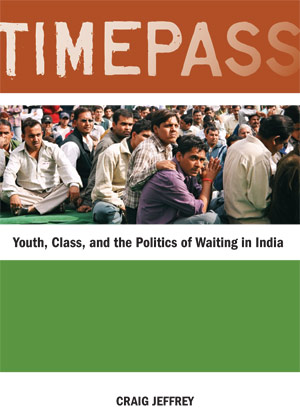My book, Timepass, examines the lives of middle class young men in India who have spent long periods in education but cannot find secure salaried work.Joblessness growth is a major problem in India. Despite the rapid growth of the IT industry, there are very few secure jobs for young people in the country, especially in the poorer northern parts of India. At the same time, demographic growth and the rise of education have swelled the ranks of educated hopefuls. It is now common for several thousand people to apply for a single middle-ranking government job in the Indian State of Uttar Pradesh.Aggravating this problem still further is the fact that the vast majority of higher educational institutions in north India offer a very poor standard of education.
There were just five computers for 16,000 students in one of the colleges in which I worked in 2005, and educational corruption was rife.My book provides an in-depth picture of how young men deal with a lack of employment opportunities. A particularly interesting dimension of the social lives of these unemployed young men was the extent to which they have become concerned about boredom. Many have become especially preoccupied with how to kill time, and they discuss themselves as people just doing “timepass” (passing the time). They stand around on street corners, play cards, watch television, gossip, and get into fights.
Many of these men depended on their parents to remain idle, and this creates inter-generational tensions.Timepass has become an identity for these men. On street corners and tea shops they often forge friendships across caste and class lines based on the idea of being men “hanging out.”Young men also work together across caste and religious lines to develop collective youth protests. Unemployed young men are sometimes a force for good: they have the time, energy and skills required to protest against injustice. They are building links between poor people and the state.



